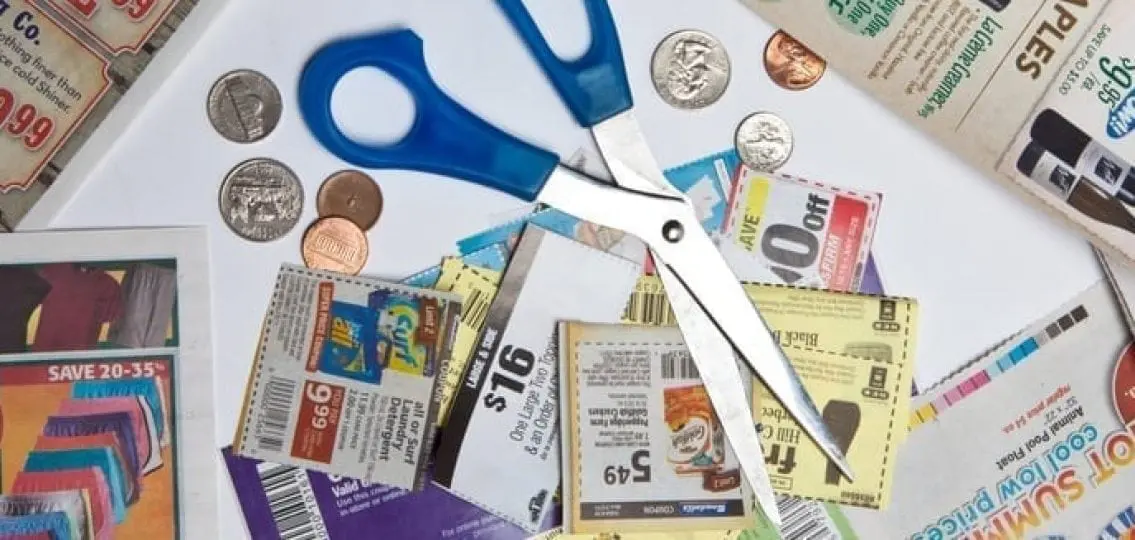My teenage son gazed into the abyss of the open refrigerator. I envisioned dollar bills floating past his head as the cold air escaped, causing our electric bill to skyrocket.

“Could you please close the refrigerator door?” I asked, trying to remain calm.
“There is nothing to eat and I’m starving!” he groaned, as he dramatically held his stomach.
“The refrigerator is empty because you ate everything from my grocery shopping trip three days ago.”
My son began his growth spurt over the summer. He sprouted up a full three inches, rendering him unrecognizable to our friends and family. At the same time, something else was unrecognizable and growing exponentially—my grocery receipt.
As an avid coupon clipper and money-saving guru, I knew I needed to do a “deep dive” of this situation to figure out how to reduce the spending. Otherwise, his college education fund will dwindle down to nothing because all of the money will be spent on feeding his endless appetite.
I’m sure there are many other parents like me out there. So I’m sharing with you what I learned from my comprehensive money saving research so your money will go towards that college fund instead of your grocery bill.
9 Ways to Save Money on Groceries For Teens
1. Buy protein.
Buy protein because eating protein will help your teen to feel full. Protein can be found in eggs, Greek yogurt, cheese, milk, fish, chicken, meat, turkey, tofu, broccoli, beans, and nuts. Check your weekly local grocery sales flyer and purchase protein foods on sale.
2. Buy sale items.
Base your meal planning on what’s on sale that week.
3. Buy marked down meat.
Ask the meat department what day they offer marked down meat. Sometimes the meat can be as much as 50 percent off the regular price because the expiration date is near.
4. Stock up on sale items.
When meat or other items go on sale, stock up and freeze them. Instead of buying one pound of meat, purchase two and freeze one. This will hold you over until the next sale since most grocery items have a sale cycle. For example, ground beef may go on sale every three weeks. Ditto for pantry items.
5. Buy frozen fish.
Frozen fish has the same quality as fresh and is often significantly less expensive. Sometimes frozen fish is marked down as much as 50 percent off the regular price.
6. Buy frozen fruit.
Fruit is frozen when it’s ripe, so it maintains its taste and nutrients. Out of season fresh fruit can be pricey, but the price of frozen fruit remains stable all year. The price of frozen fruit also remains consistent regardless of type. For example, a 16 oz. bag of frozen raspberries is the same prices as a 16 oz. bag of frozen blueberries, while the price difference between fresh raspberries and blueberries can be significant.
7. Clip paper and electronic coupons.
You already know about the coupons in newspapers and sales flyers, but there are other sources of great deals. Find online coupons to print at coupon sites like Coupons.com, RedPlum.com or Lozo.com, or directly from the manufacturers’ websites. You can also “clip” digital coupons and redeem them from a website or phone app at the store. These digital coupons can be found in a variety of places, including grocery store websites or SavingStar.com.
8. Participate in coupon exchanges.
If you don’t get the newspaper coupons, ask a friend or neighbor to pass theirs along. Some places like libraries offer a coupon box exchange.
9. Use money-saving apps.
There are a variety of cash back grocery store apps. After you purchase select items you can earn money back by submitting your receipt. Some grocery store cash back apps include Ibotta and Checkout51.

Saving money is definitely an investment of your time, but it can be worth it. Once you figure out how to cut spending even in one area such as on buying protein, you will see your grocery bill start to shrink. Mine did! Now if only I could figure out a way to go longer than three days without a trip to the grocery store…




